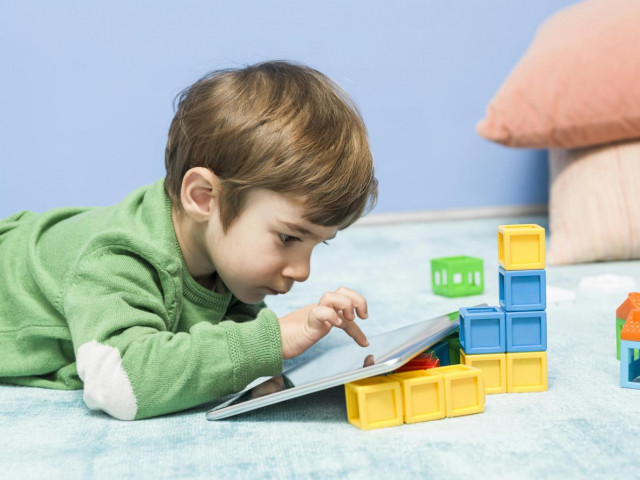Touchscreen use by toddlers linked to poor sleep
Most children aged six months to three years use a touchscreen device every day

PHOTO: THE INDEPENDENT
About three quarters of children aged between six months and three years use devices like iPads or smartphones every day, claim researchers at Birkbeck, University of London and King’s College London.
Light from electronic screens has been shown to lower levels of melatonin (the sleep-regulating hormone), said Tim Smith, a psychology lecturer. “The devices are in the parents’ pockets all the time. The children learn this is a thing of interest, and then get interested too,” he explained. “Parents wonder what the impact might be but technology is such a recent introduction into family life that the science isn’t really there to inform parents, or give them guidelines on how they should be using them.”
Survey claims parents favour sons over daughters
Tim added, “We didn’t have a daily diary in the study, so we didn’t know exactly when the children are using the devices, but the total time they used the device during the day was associated with these sleep differences.”
The study also showed some positive effects of touchscreens on toddlers, like improved motor skills. Tim and his colleagues sent an online survey to 715 parents about their child’s daily touchscreen use and sleep habits and found that for each extra hour spent with an electronic device, the children lost nearly 16 minutes of sleep.
“The wavelengths of light are not what they’re usually getting at night time, so that could be suppressing melatonin. It could just be their general level of distraction and stimulation,” said Tim stated. “But it could be to do with the families. The screen may not be causing this problem at all, but its increased use could be symptomatic of something else about the child, such as hyperactivity. Plus, there could be less strict bedtimes, more irregular parenting and more media use in general.”
Academics have doubted the validity of the study, with statistics expert Kevin McConway saying those who choose to respond to online surveys are “hardly typical of UK families” at least. “Of the mothers involved, a huge 45% had a postgraduate qualification and 86% had a university-level qualification. In the 2011 census, only about a third of women of child-bearing age in England and Wales had a university qualification,” said Kevin. “We aren’t given much more information in the survey, but if they are so untypical in this way, they could be untypical in other ways too. In particular, would parents who choose to respond to a survey about touchscreen use be typical in terms of their young children’s touchscreen use? We just can’t tell.”
Anna Joyce, a developmental psychology researcher at Coventry University, said the study opens the way for future research. “This is an important area of research since we know that sleep is critically important for children’s health; those who sleep well have better attention, memory and other cognitive abilities and consequently do better at school,” she added. “Until we know more about how touchscreens affect sleep, they shouldn’t be banned completely, as there may also be cognitive benefits associated with their use, for example, as the authors showed in their previous work, for the development of fine motor skills.”
Qandeel’s parents trying to save son, says police
According to Nicole Edmondson, mother of two young boys, touchscreens fascinate toddlers by offering a sense of control. “The same child who wants to put on his own shoes even though he can’t quite do it is delighted by being able to manipulate something with such ease. Plus, the children’s games and shows are skillfully designed to enthrall them.”
Have something to add to the story? Share it in the comments below.



















COMMENTS
Comments are moderated and generally will be posted if they are on-topic and not abusive.
For more information, please see our Comments FAQ